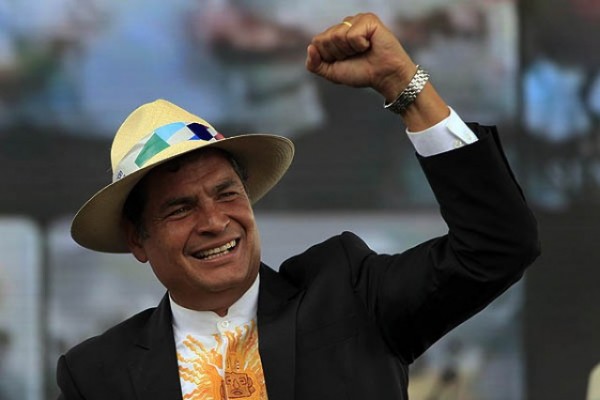The electoral campaign in Ecuador enters its last week today, returning in recent days to the uneventful and peaceful climate that has dominated the entire process after being shaken last Monday by the outburst from a man who attacked sympathisers of Rafael Correa with a knife during an event.
The incident, logically an emotional impact, clearly contrasted with the peaceful electoral campaign that had been developing up to that point, something that Correa himself made sure to underline a few hours after it happened, in moments when he suspended campaigning to go and personally greet the families of the victims.
The crudeness of the images of the attack very clearly demonstrated that this is as much a painful event as it is isolated – to quote Correa – and without any political tinge.
The presidential clarification that included warm gratitude for the majority of the opposition candidates for their rapid condemnations and words of encouragement for the victims and their families, managed to put back on the track the climate of peacefulness in the electoral process, which has been endangered by the demented attack.
The relaxed atmosphere also has a certain origin in the general sensation that the elections are already resolved and that the supremacy of Correa is such that the president will achieve re-election in the first round and with more than 50 per cent of the votes.
The latest opinion polls publically published by the Specialised Research and Study Centre (CIEES in its Spanish acronym), give Correa, candidate for Alianza País, 56.4% of voting intentions.
Behind the president follow the banker, Guillermo Lasso, with 20.6% and the former president Lucio Gutiérrez, defeated in 2005, with 5.8%.
Finalising the list come Alberto Alcosta, Correa’s former energy minister (5.2%), the millionaire Alvaro Noboa (4.3%) and finally Mauricio Rodas, Nelson Zavala and Norman Wray with statistically insignificant ratings.
To win in the first round, the candidate in first place must obtain more than 40% of the votes or have at least 10% more of the votes than the second placed candidate.
If the election confirms the findings of the polls, Correa will become the first head of State since 1996 to end his mandate without popular rebellion or coup d’etat, beyond the intent to topple him at the end of September 2010 with an attempted police uprising which was brought under control by the government within hours.










